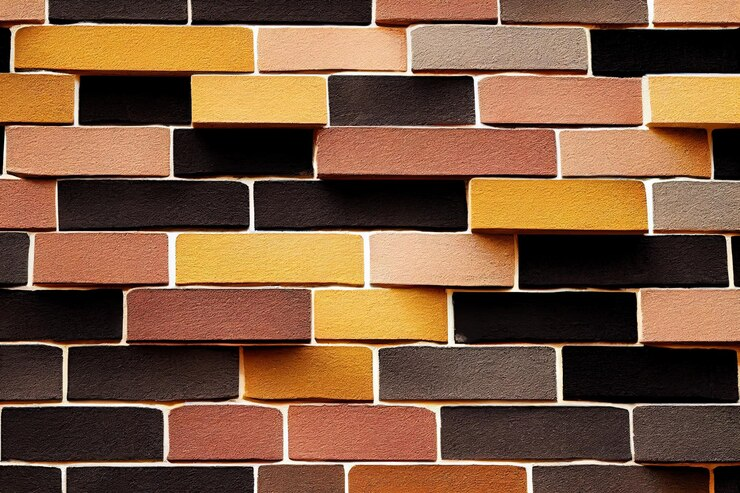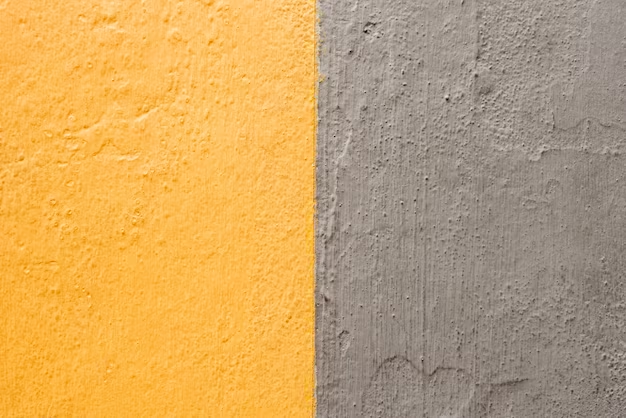Concrete, a fundamental component in construction, forms the backbone of countless structures worldwide. Whether you're planning a residential project, a commercial development, or seeking decorative enhancements, choosing the right concrete contractor is paramount. In this article, we delve into the nuances of selecting a concrete contractor, the types of services they offer, and the importance of proper installation.
Qualities to Look for in a Concrete Contractor
When embarking on a construction project, selecting the right concrete contractor is pivotal to its success. The qualities of a reputable contractor go beyond the surface, ensuring a seamless and reliable outcome. Here are the key qualities to look for:
1. Experience and Expertise
Why it Matters: Experience is a testament to a contractor's ability to handle diverse projects. An experienced contractor brings not only technical know-how but also insights into overcoming challenges that may arise during the project.
What to Look For: Seek contractors with a proven track record, showcasing successful projects similar to yours. Their expertise should align with the specific requirements of your construction endeavor.
2. Reputation and Reviews
Why it Matters: Reputation speaks volumes about a contractor's reliability and professionalism. Positive reviews from past clients are indicative of a contractor's commitment to delivering quality results.
What to Look For: Research online reviews and testimonials. A contractor with consistently positive feedback is likely to provide a satisfactory experience.
3. Licensing and Insurance
Why it Matters: Licensing ensures that the contractor meets industry standards and regulations. Insurance is crucial for protecting your project and the workers involved.
What to Look For: Confirm that the contractor holds the necessary licenses for your location. Additionally, ensure they carry comprehensive insurance coverage, including liability and worker's compensation.
4. Portfolio of Past Projects
Why it Matters: A portfolio showcases the breadth of a contractor's capabilities. It provides visual evidence of their workmanship and ability to handle various project types.
What to Look For: Examine the portfolio for projects similar to yours. A diverse portfolio indicates versatility and competence in handling different aspects of concrete construction.
These first four qualities lay the foundation for a reliable concrete contractor. In the next section, we'll explore the types of concrete services offered by professionals in the field.
Types of Concrete Services Offered
Residential Concrete Services
From driveways to foundations, residential concrete services encompass a broad spectrum. A skilled contractor will handle projects of any scale with precision.
Commercial Concrete Services
For commercial developments, choosing a contractor well-versed in large-scale projects is crucial. This includes foundations, parking lots, and structural components.
Decorative Concrete Services
Elevate the aesthetic appeal of your space with decorative concrete. Stamped patterns, colored concrete, and innovative finishes are among the possibilities.
Benefits of Hiring a Professional Concrete Contractor
Quality Workmanship
Professional contractors ensure top-notch workmanship, guaranteeing the durability and reliability of your concrete structures.
Timely Completion of Projects
Time is of the essence in construction. A reputable contractor adheres to timelines, preventing unnecessary delays.
Cost-Effectiveness in the Long Run
While DIY may seem cost-effective initially, professional contractors save you money in the long run through efficient project management and quality materials.
Common Mistakes to Avoid When Hiring a Concrete Contractor
Ignoring Credentials
Credentials matter. Overlooking the contractor's qualifications can lead to subpar work and potential legal issues.
Not Checking References
Speak to past clients. References offer firsthand accounts of a contractor's performance and reliability.
Overlooking a Detailed Contract
A comprehensive contract is your safeguard. Ensure it outlines project details, timelines, and payment terms.
The Importance of Proper Concrete Installation
Impact on Structural Integrity
Proper installation is critical for the structural integrity of your project. Cutting corners here can lead to costly repairs in the future.
Longevity of the Concrete
Well-installed concrete ensures longevity, minimizing the need for premature replacements or repairs.
Aesthetic Appeal
Whether it's a driveway or a decorative patio, proper installation enhances the visual appeal of your concrete surfaces.
Innovations in Concrete Technology
Sustainable Concrete Options
The industry is embracing eco-friendly alternatives. Explore sustainable concrete options that reduce environmental impact.
Advanced Decorative Concrete Techniques
Innovative techniques allow for intricate designs and patterns, providing endless possibilities for decorative concrete.
High-Performance Concrete
Advancements in concrete technology result in high-performance options, catering to specific project requirements.
Challenges Faced by Concrete Contractors
Weather-Related Challenges
Unpredictable weather poses challenges, affecting the curing process and overall project timelines.
Project Management Difficulties
Coordinating various aspects of a project requires effective project management skills, a challenge that contractors navigate daily.
Quality Control Issues
Maintaining quality standards is an ongoing challenge. Reputable contractors implement stringent quality control measures.
How to Communicate Effectively with Your Concrete Contractor
Clear Project Goals
Define your project goals clearly, ensuring both parties have a shared understanding of the desired outcomes.
Regular Updates and Feedback
Open communication channels foster a collaborative environment. Regular updates and feedback sessions enhance project transparency.
Open and Honest Communication
Address concerns promptly, and encourage open and honest communication throughout the project.
DIY vs. Professional Concrete Installation
Pros and Cons of DIY
While DIY projects may seem appealing, consider the potential pitfalls, especially when it comes to complex tasks like concrete installation.
When It's Advisable to Hire a Professional
For large-scale or intricate projects, the expertise of a professional concrete contractor ensures optimal results and peace of mind.
Case Studies: Successful Concrete Projects
Highlighting successful projects showcases a contractor's capabilities. Explore case studies that align with your project goals.
Future Trends in Concrete Construction
Sustainable and Eco-Friendly Concrete
As sustainability gains importance, expect more environmentally friendly concrete options to emerge.
Technological Advancements in Concrete Production
Innovations in production techniques enhance the efficiency and quality of concrete materials.
Emerging Architectural Uses of Concrete
Architects are pushing boundaries, incorporating concrete in innovative and artistic ways in modern designs. Concrete, once relegated to the realm of structural support, has evolved into a versatile and aesthetically pleasing element in modern architecture. In contemporary designs, architects are pushing the boundaries of what concrete can achieve, utilizing it not just for its strength but also for its artistic and functional properties.
Contemporary Designs Incorporating Concrete
A Fusion of Strength and Elegance
Modern architects embrace the raw beauty of concrete, incorporating it into designs that balance strength and elegance. From sleek residential homes to avant-garde commercial spaces, concrete takes center stage, showcasing its adaptability.
Innovative Use of Formwork
Architects experiment with formwork techniques, molding concrete into unconventional shapes and forms. This creative use of formwork results in buildings that defy traditional norms, contributing to the uniqueness of modern architectural landscapes.
Artistic and Functional Aspects of Concrete in Architecture
Exposed Concrete Finishes
In modern architecture, the trend of exposing concrete finishes has gained popularity. The natural texture and color variations of concrete become design features, adding character to spaces. This technique is commonly seen in industrial-inspired lofts and contemporary residential interiors.
Concrete as a Design Element
Architects use concrete not just as a construction material but as a design element. Feature walls, sculptural installations, and even furniture made from concrete contribute to the overall aesthetics of a space, blurring the lines between structural and decorative.
Sustainability and Concrete
Green Building Practices
As sustainability becomes a focal point in architecture, concrete plays a role in green building practices. Innovations in concrete production aim to reduce environmental impact, with the development of eco-friendly concrete mixes and recycling processes.
Thermal Mass for Energy Efficiency
Concrete's thermal mass properties contribute to energy-efficient designs. Buildings constructed with concrete can absorb, store, and release heat, reducing the need for excessive heating or cooling. This energy efficiency aligns with the principles of sustainable architecture.
Integration with Technology
Smart Concrete
Technological advancements are shaping the future of concrete in architecture. The development of smart concrete, embedded with sensors and data-collecting capabilities, enhances structural monitoring and maintenance, ensuring longevity and safety.
3D Printing in Concrete Construction
Innovations like 3D printing in concrete construction allow for intricate and customizable designs. This technology opens up new possibilities for architects to create structures that were once deemed impractical or complex.
Concrete as a Statement Piece
Landmark Structures
Iconic structures around the world showcase the grandeur of concrete in modern architecture. From museums to bridges, architects use concrete to make bold statements, blending form and function in structures that stand as landmarks.
Bridging Tradition and Modernity
Concrete bridges the gap between traditional and modern architectural styles. Architects often combine concrete with other materials, such as glass and steel, creating visually stunning compositions that bridge the gap between past and present.
In conclusion, the role of concrete in modern architecture extends beyond its utilitarian aspects. Architects harness its strength, versatility, and aesthetic potential to create structures that define the contemporary landscape. As we look to the future, the integration of sustainable practices and technological innovations will likely further elevate concrete's significance in shaping the architecture of tomorrow.

















No comments:
Post a Comment